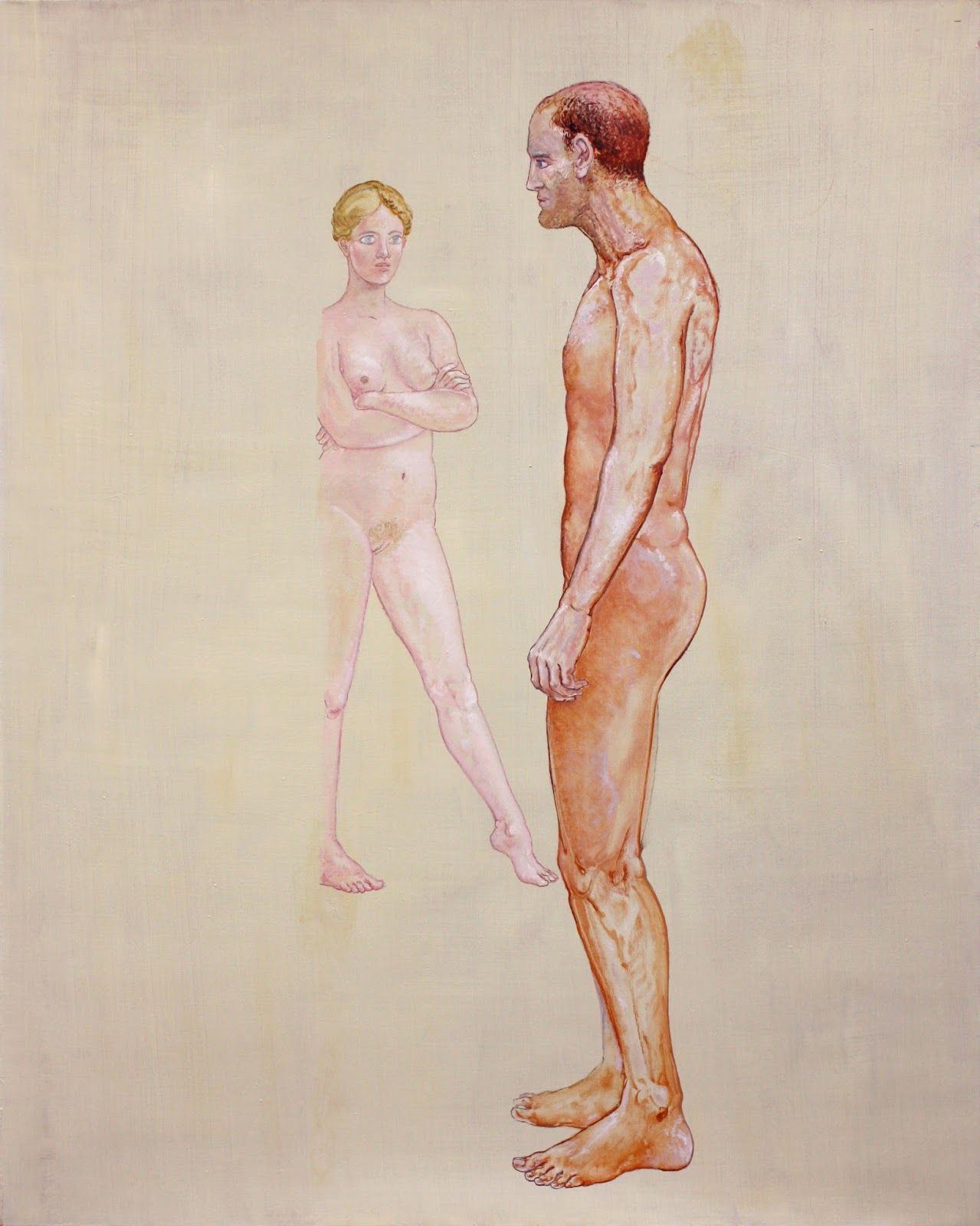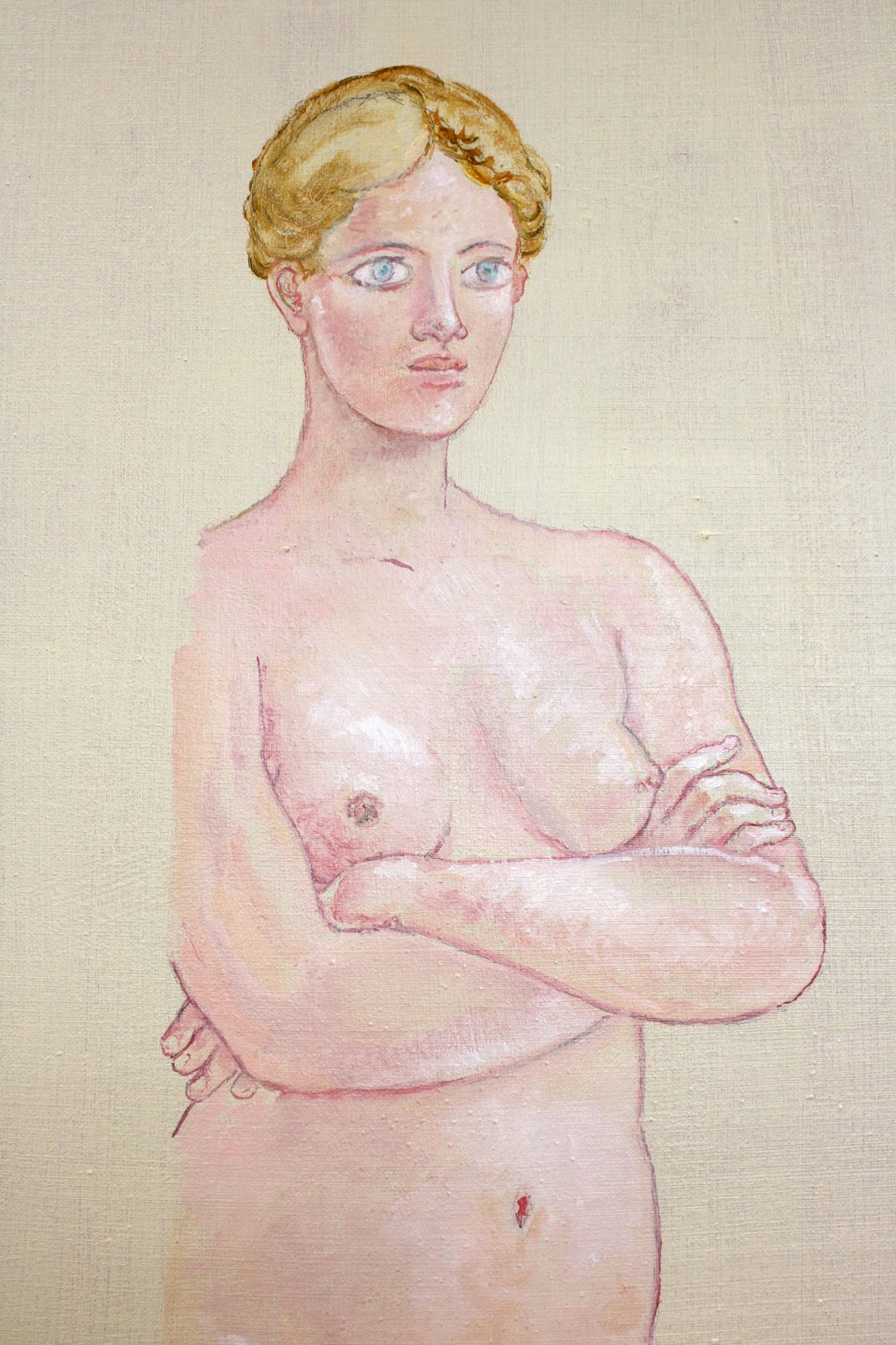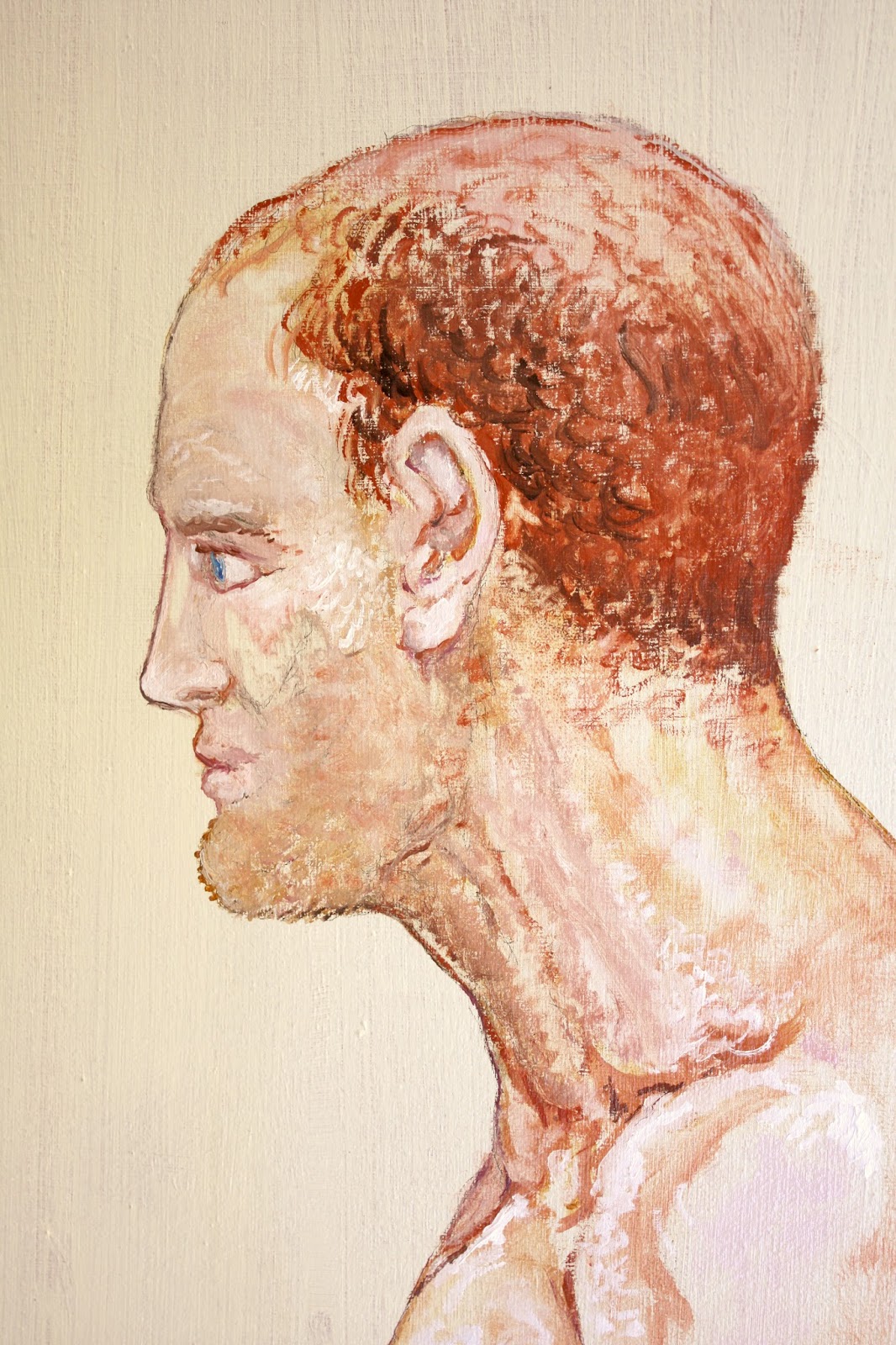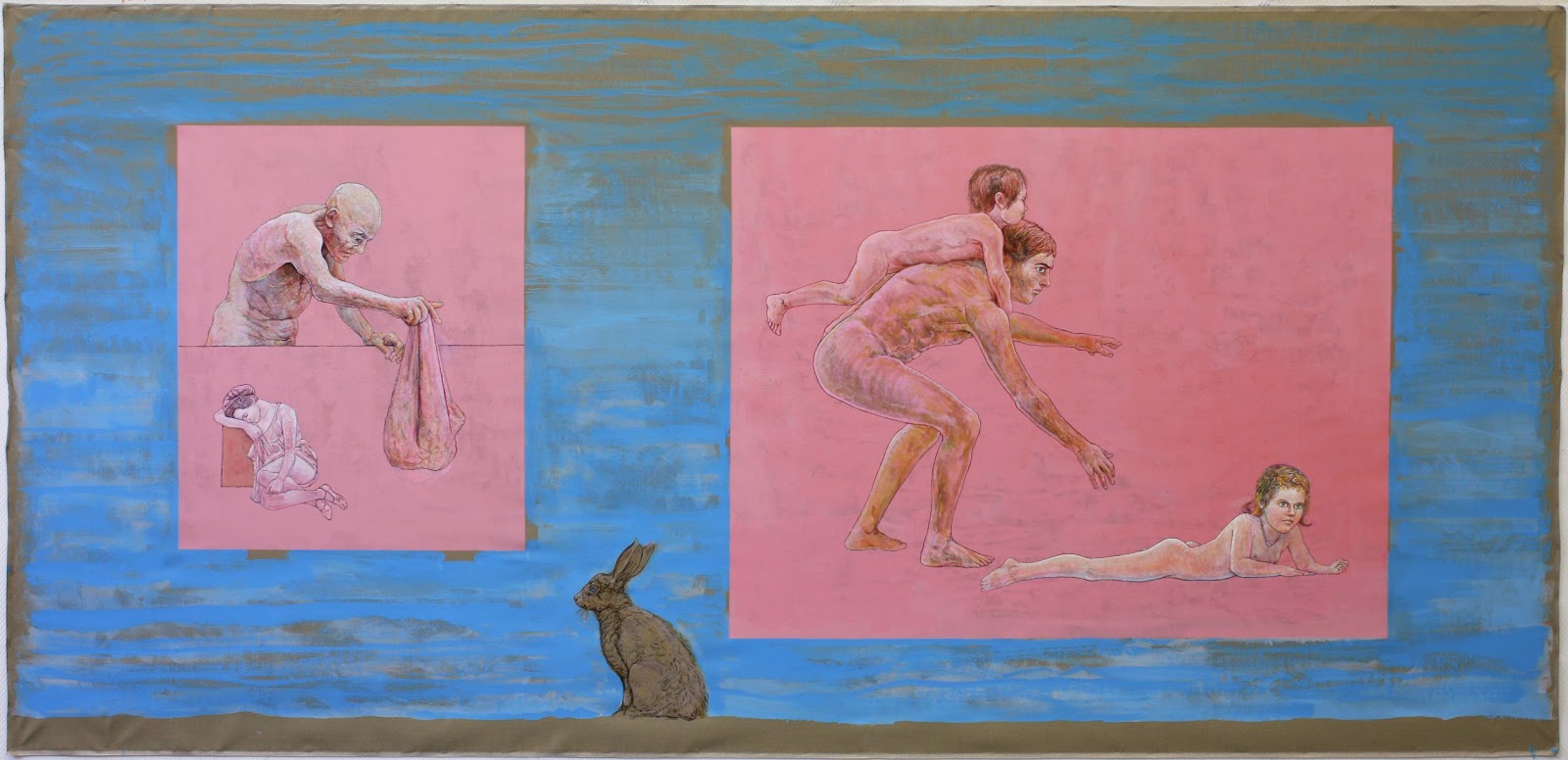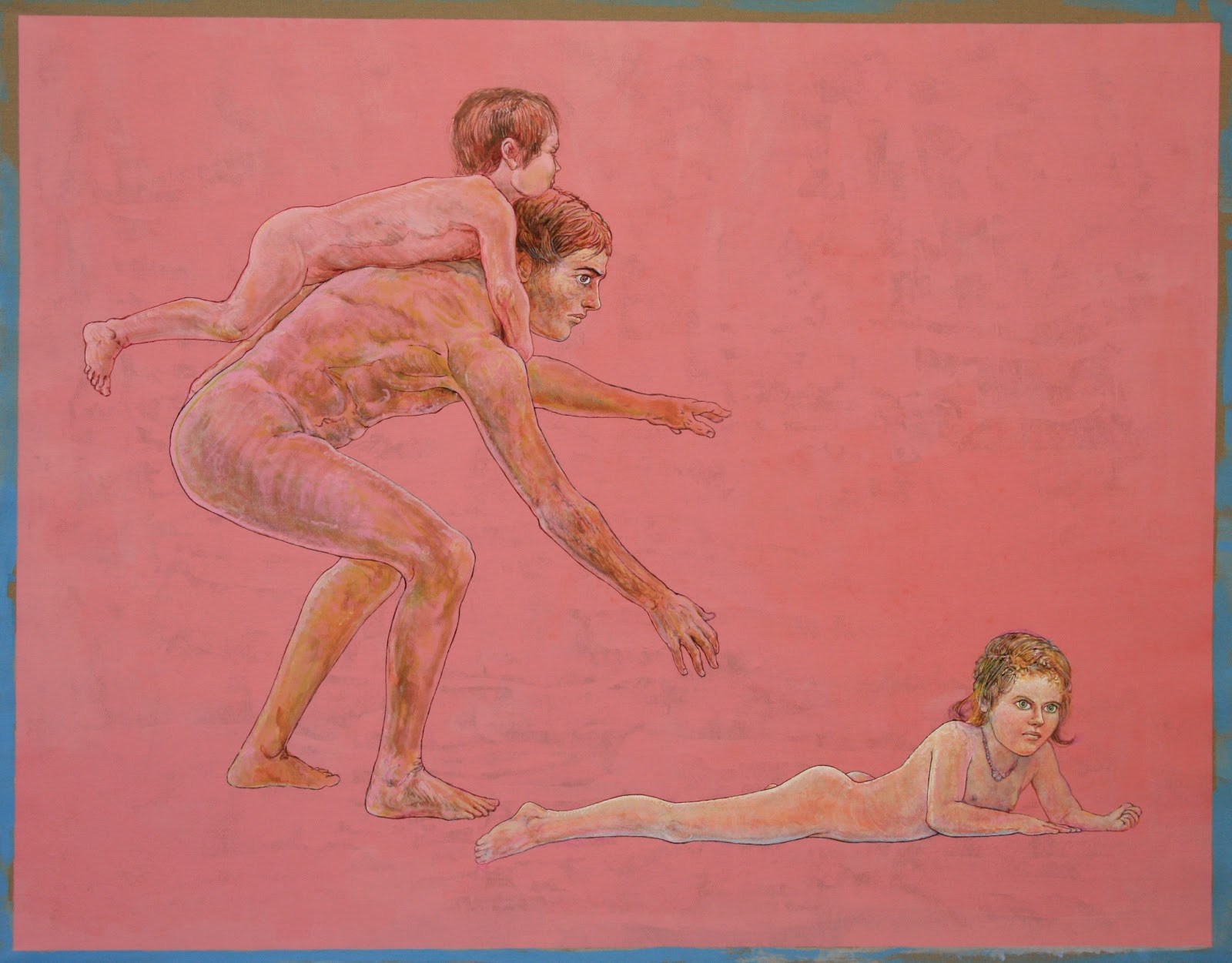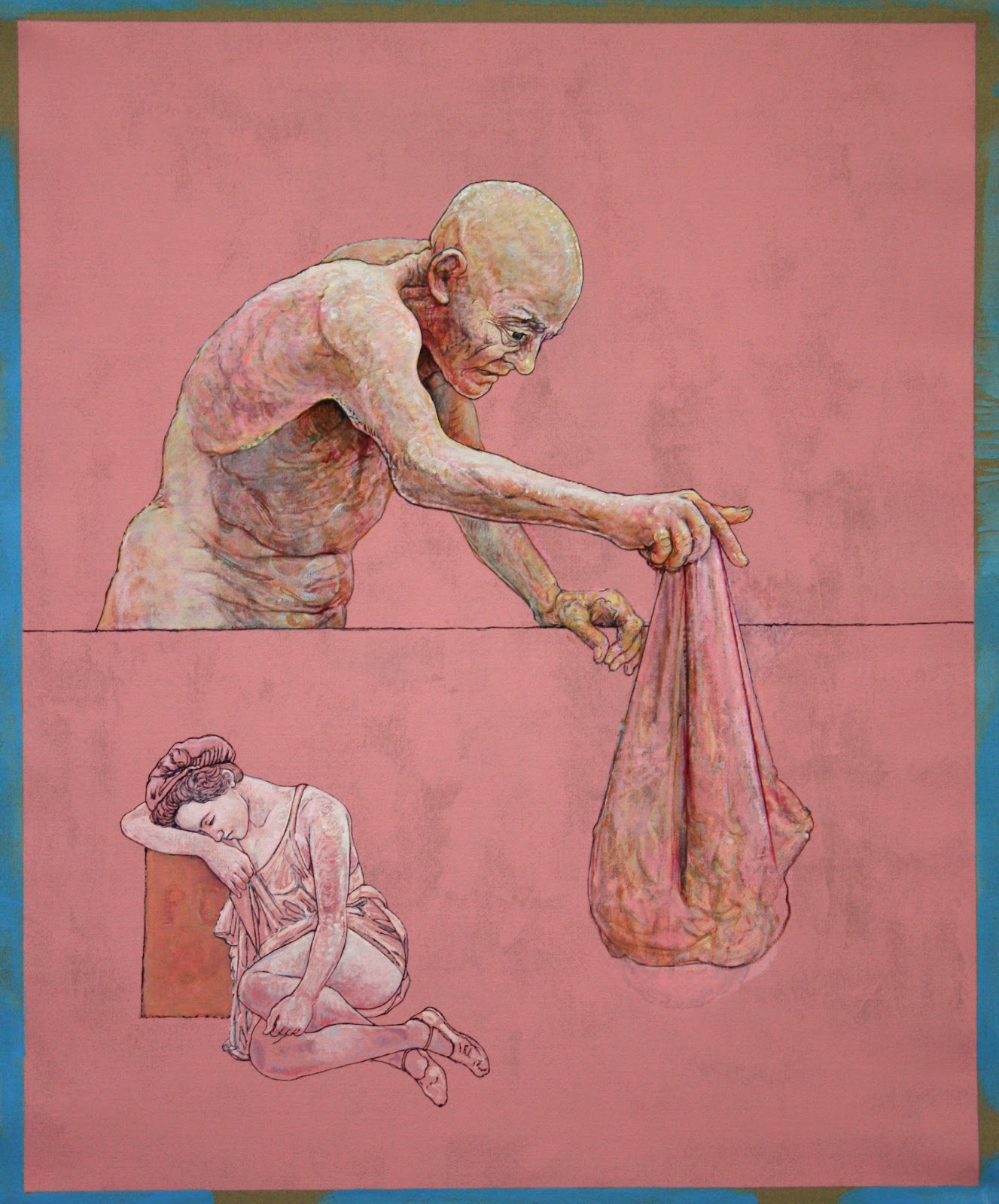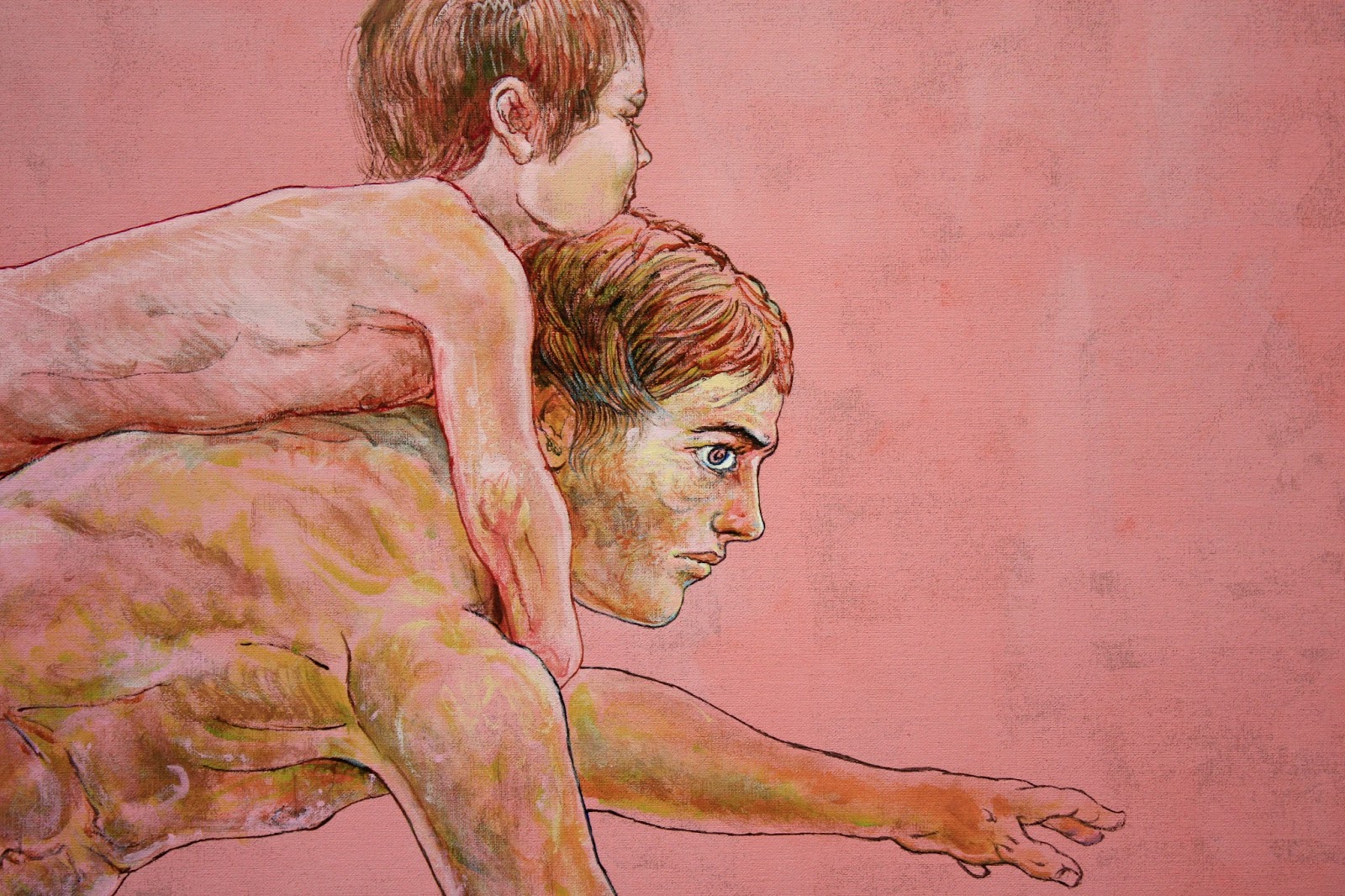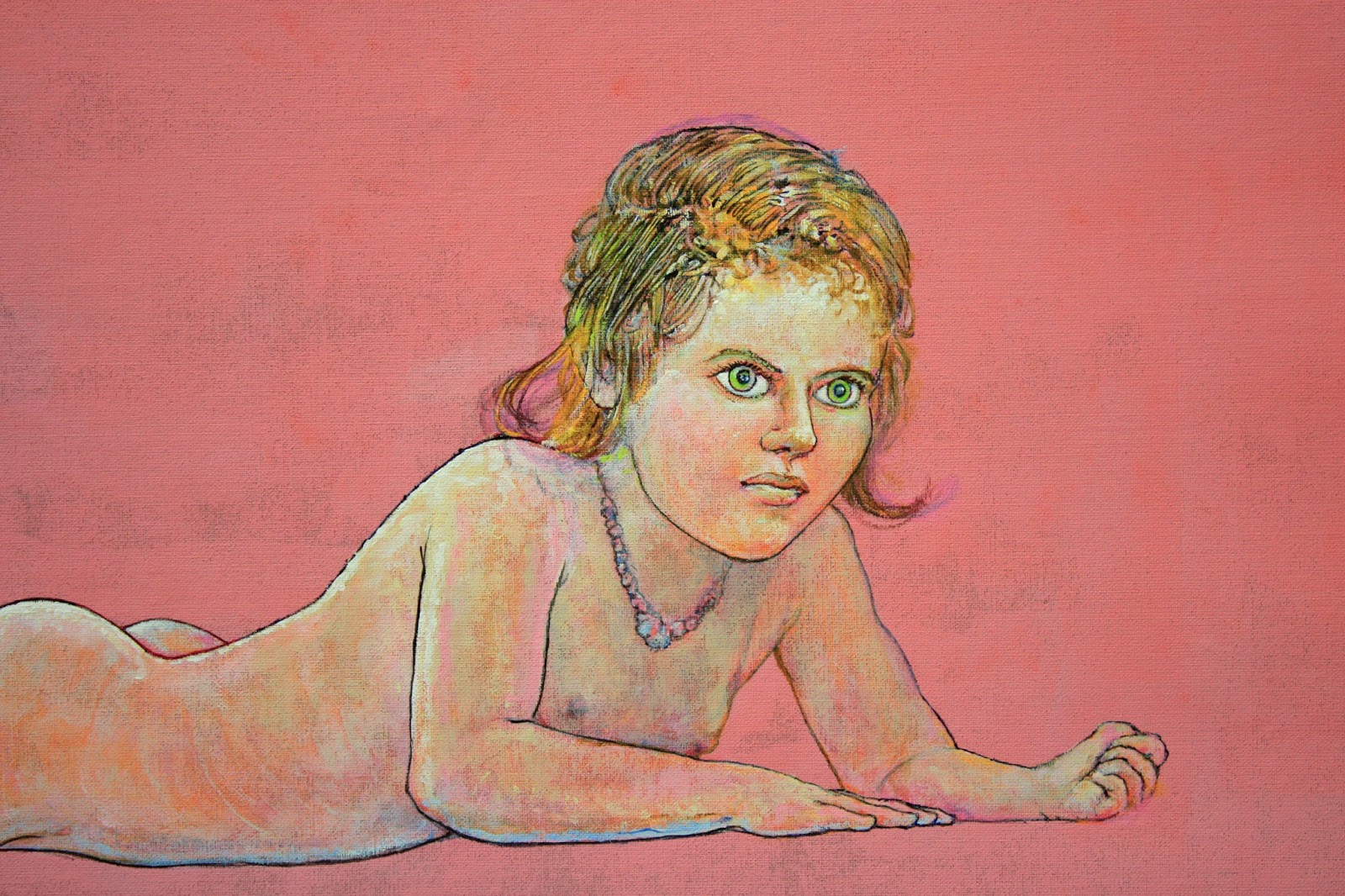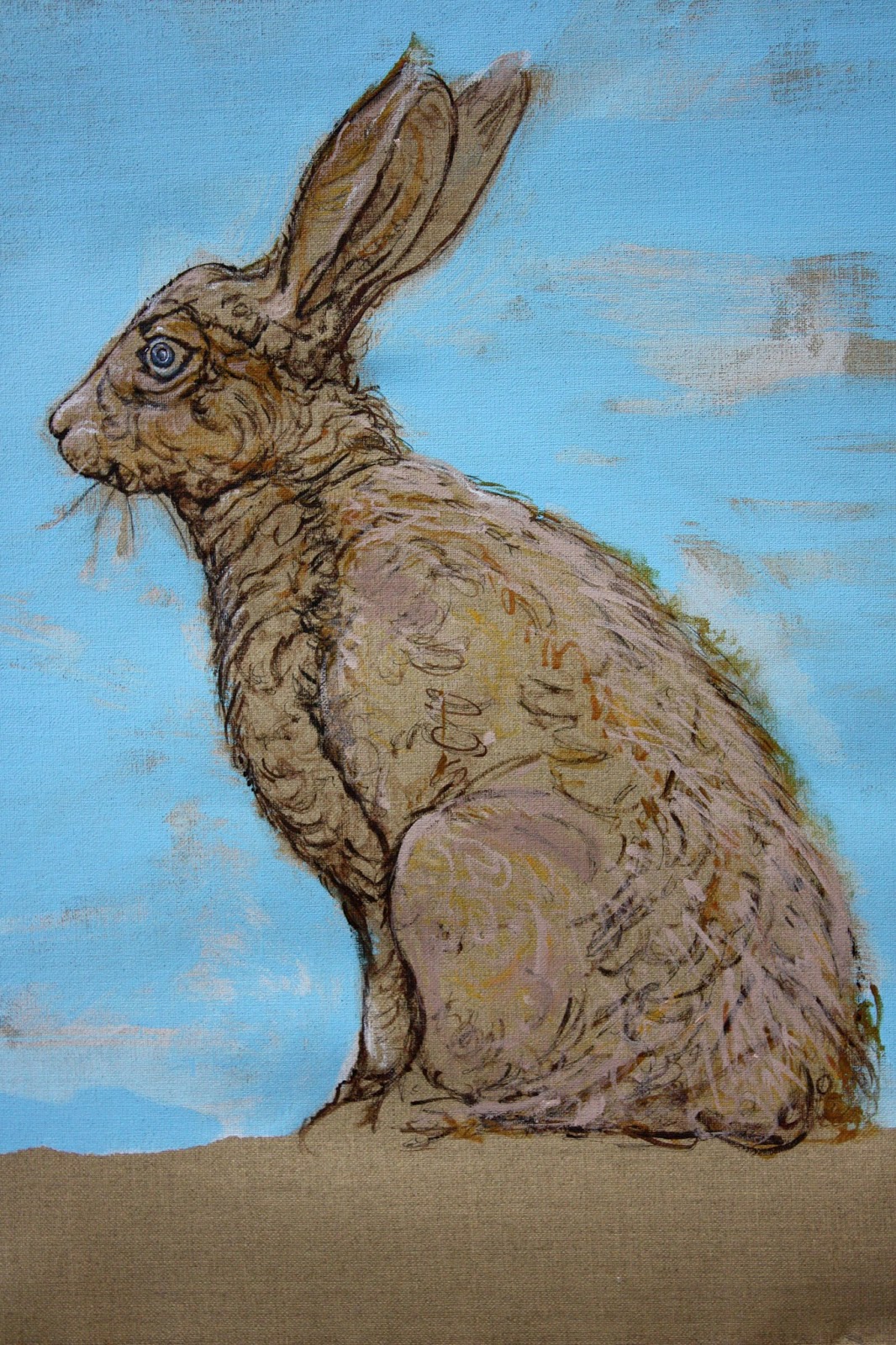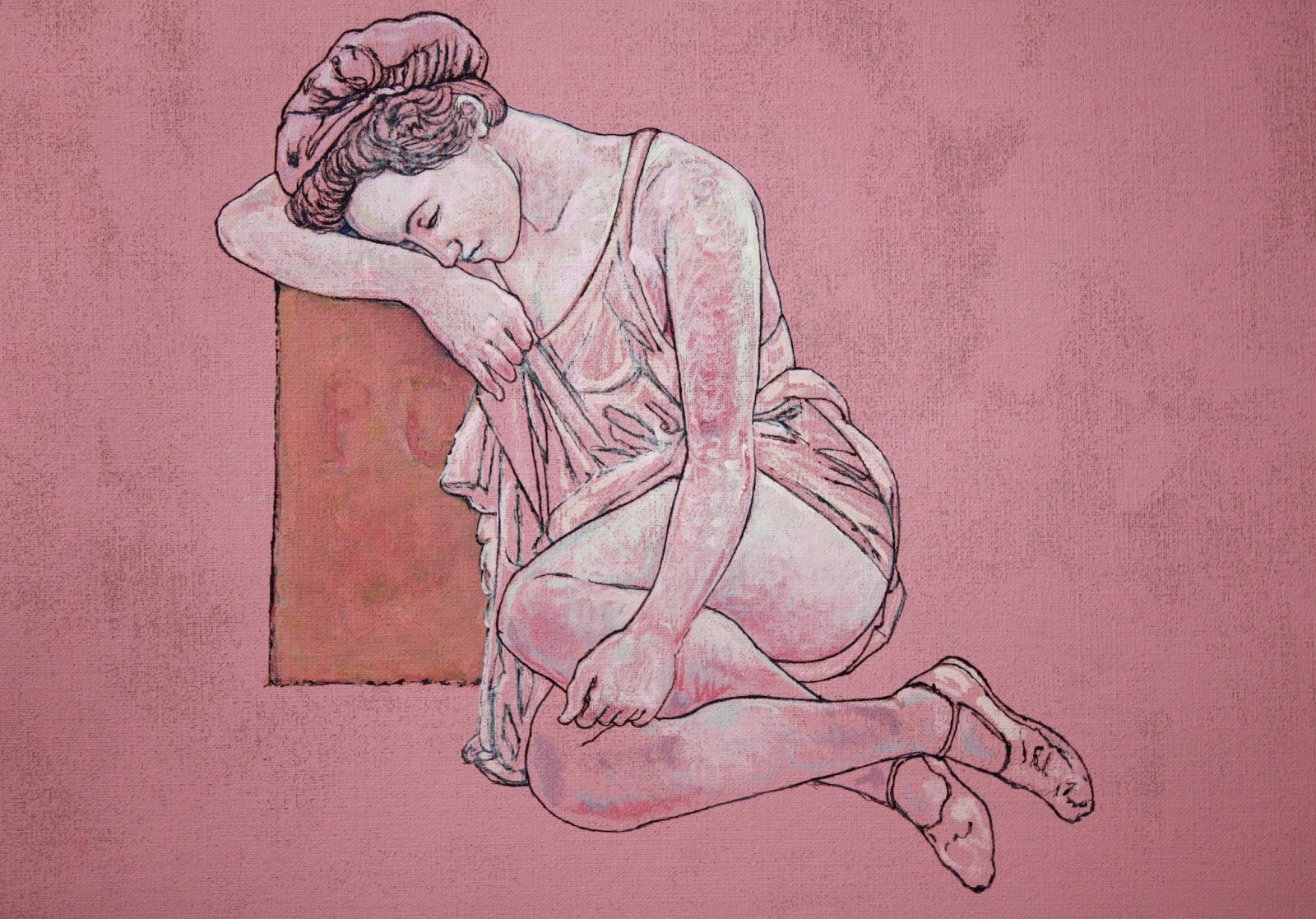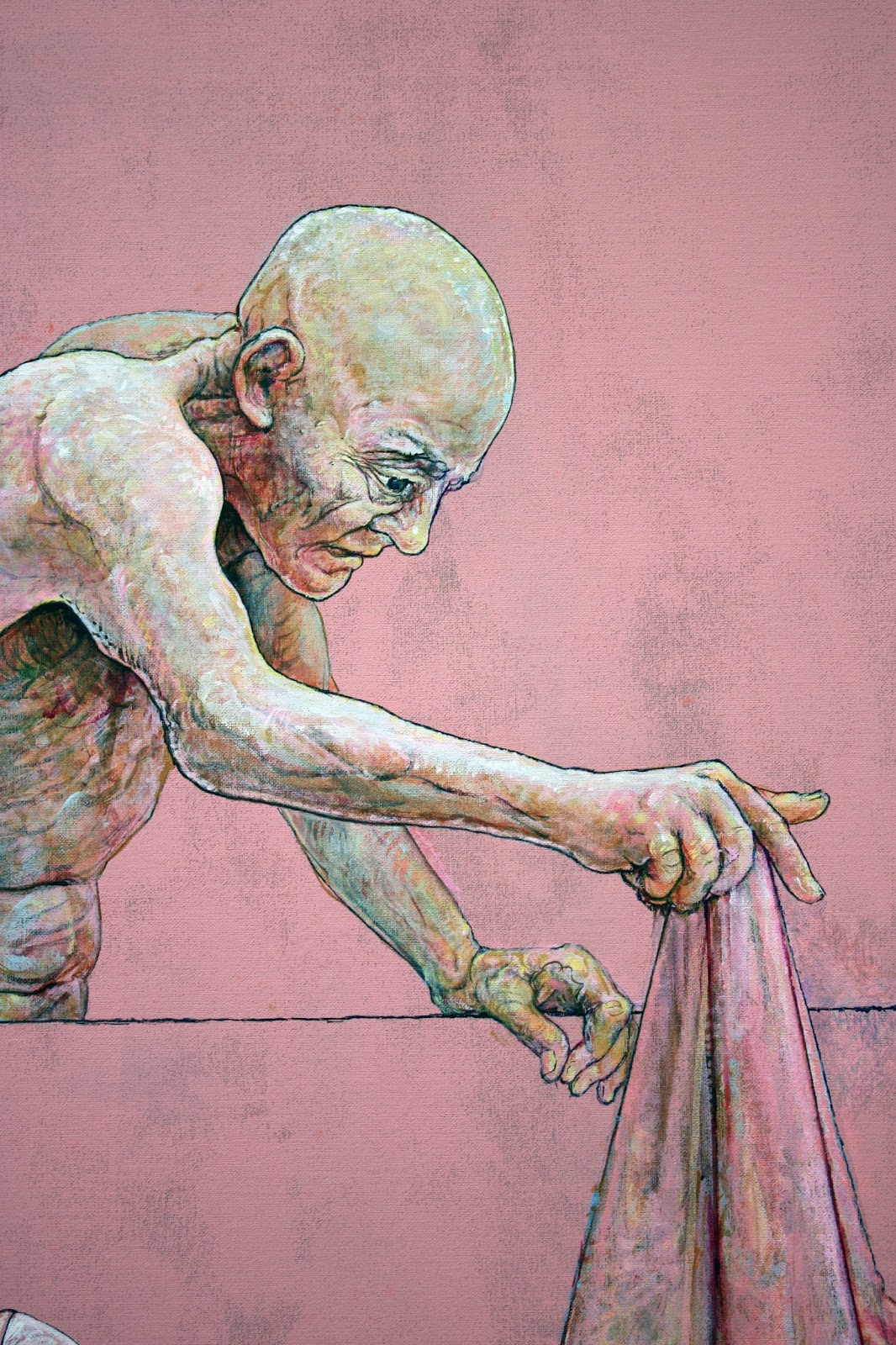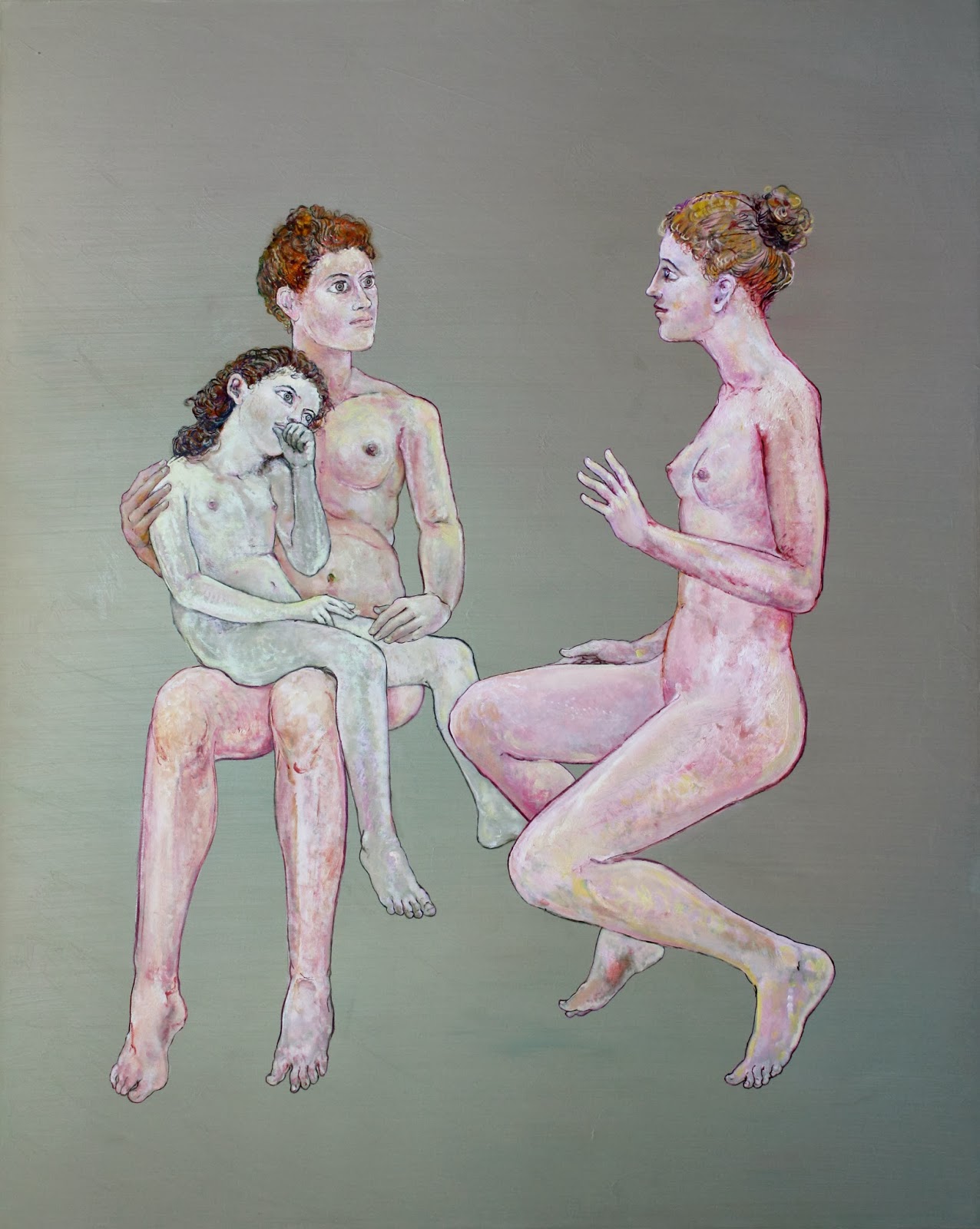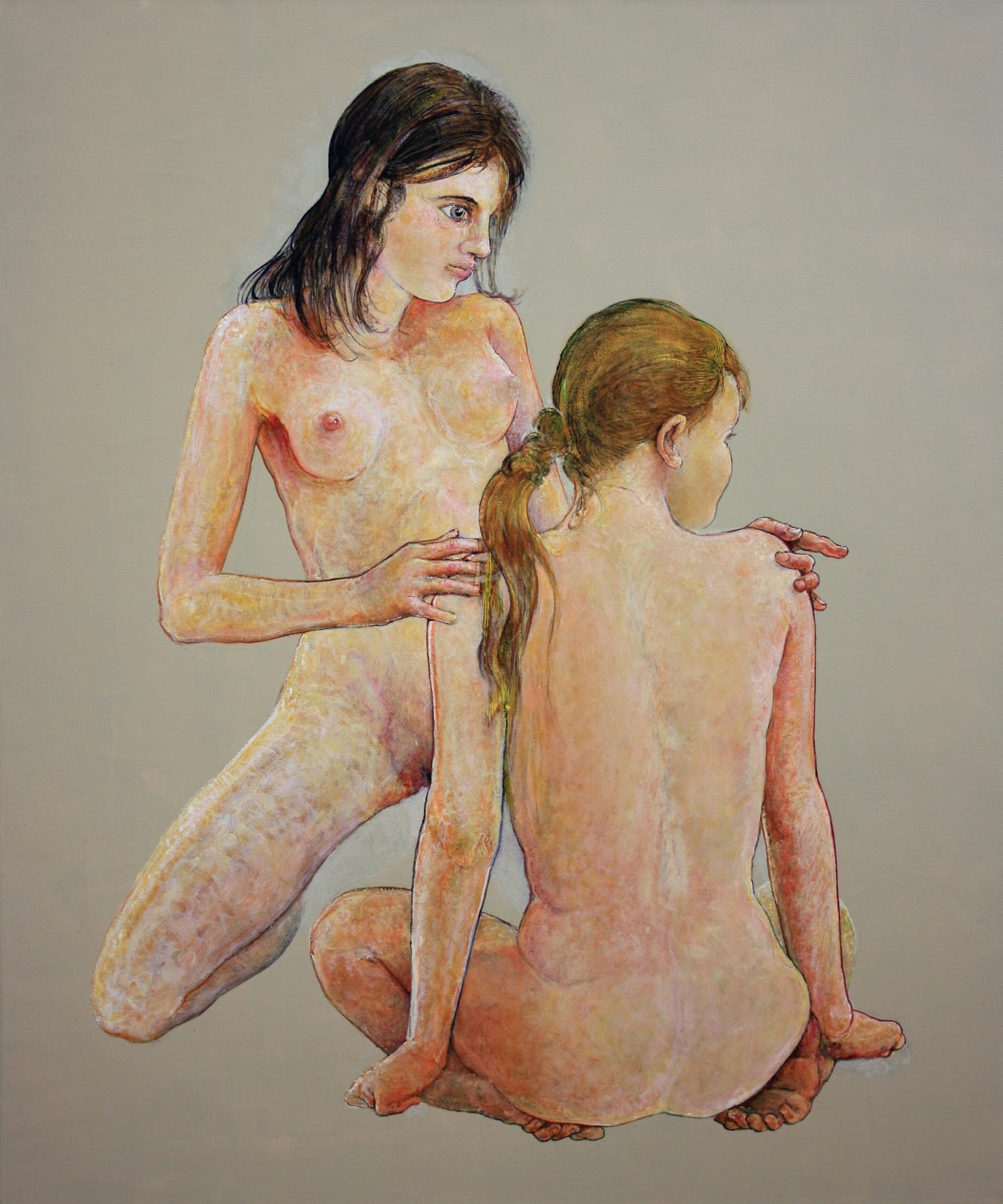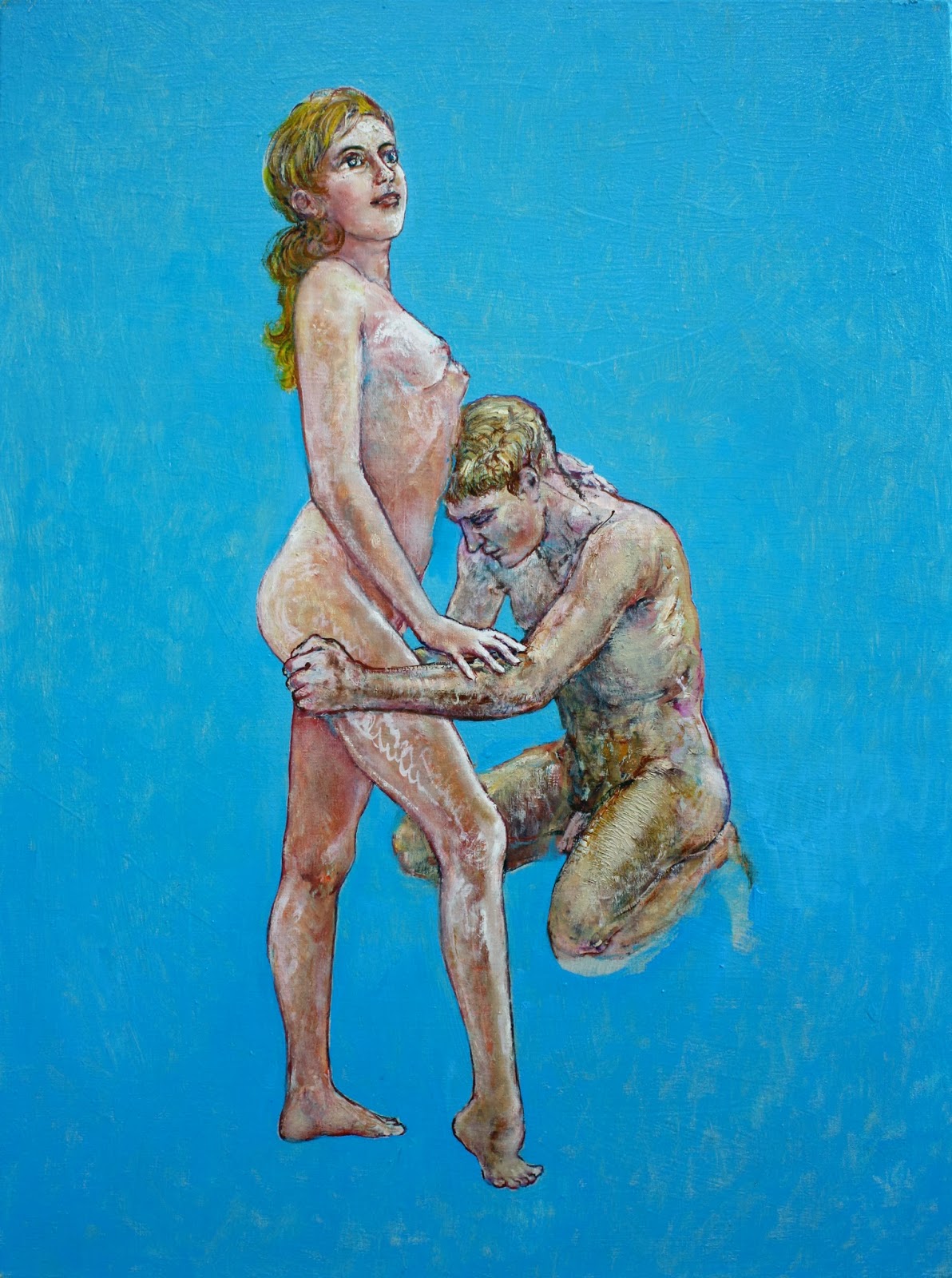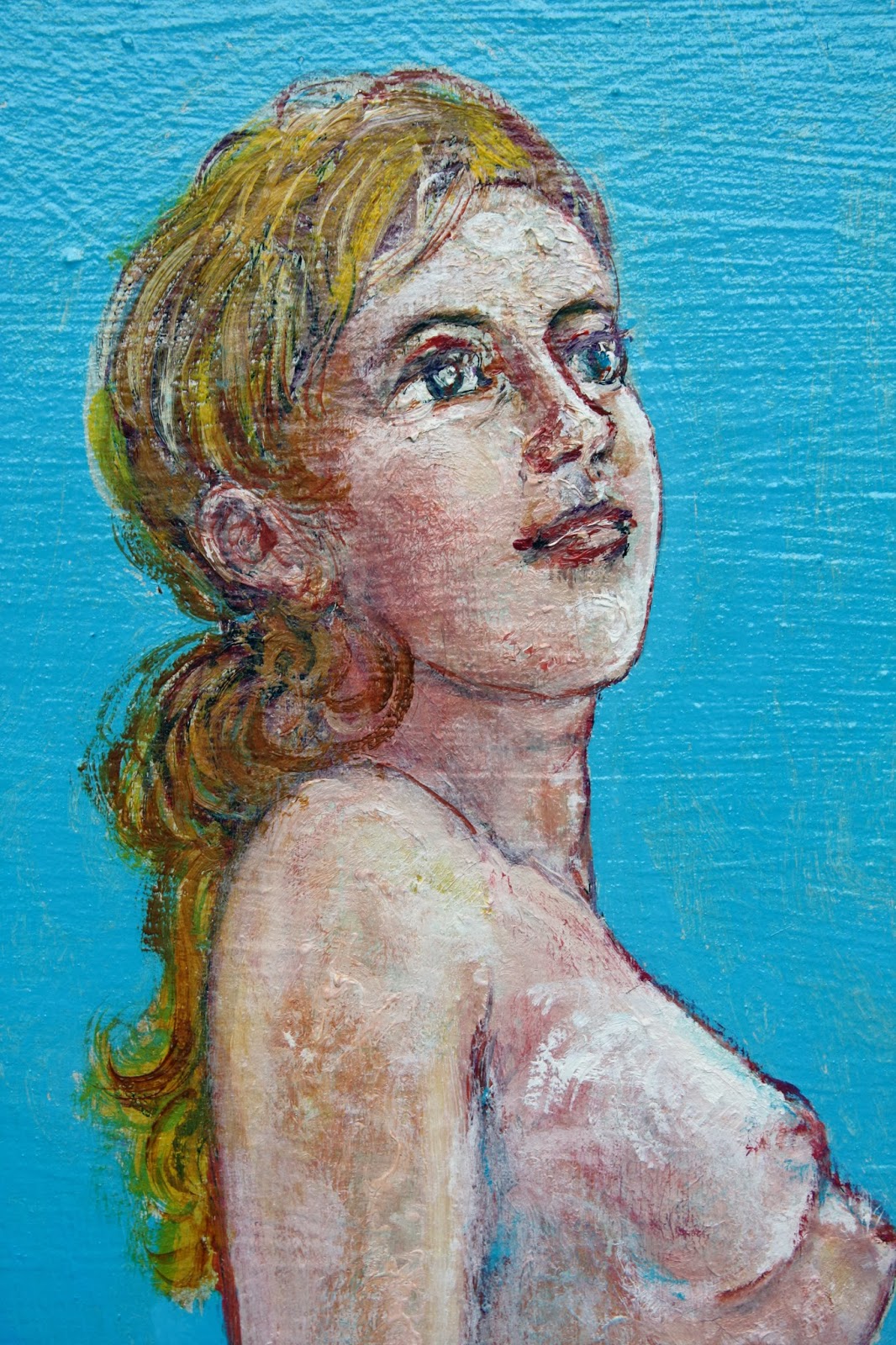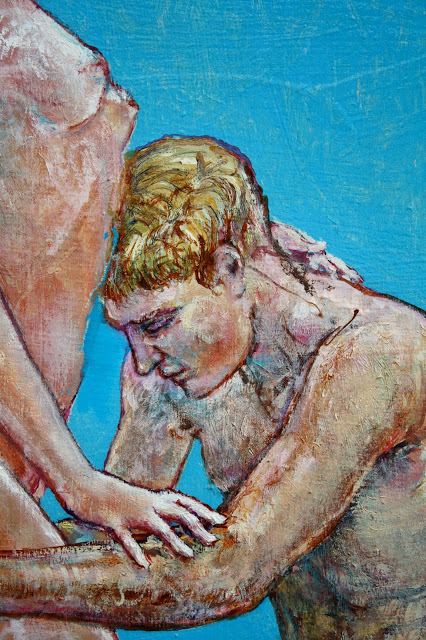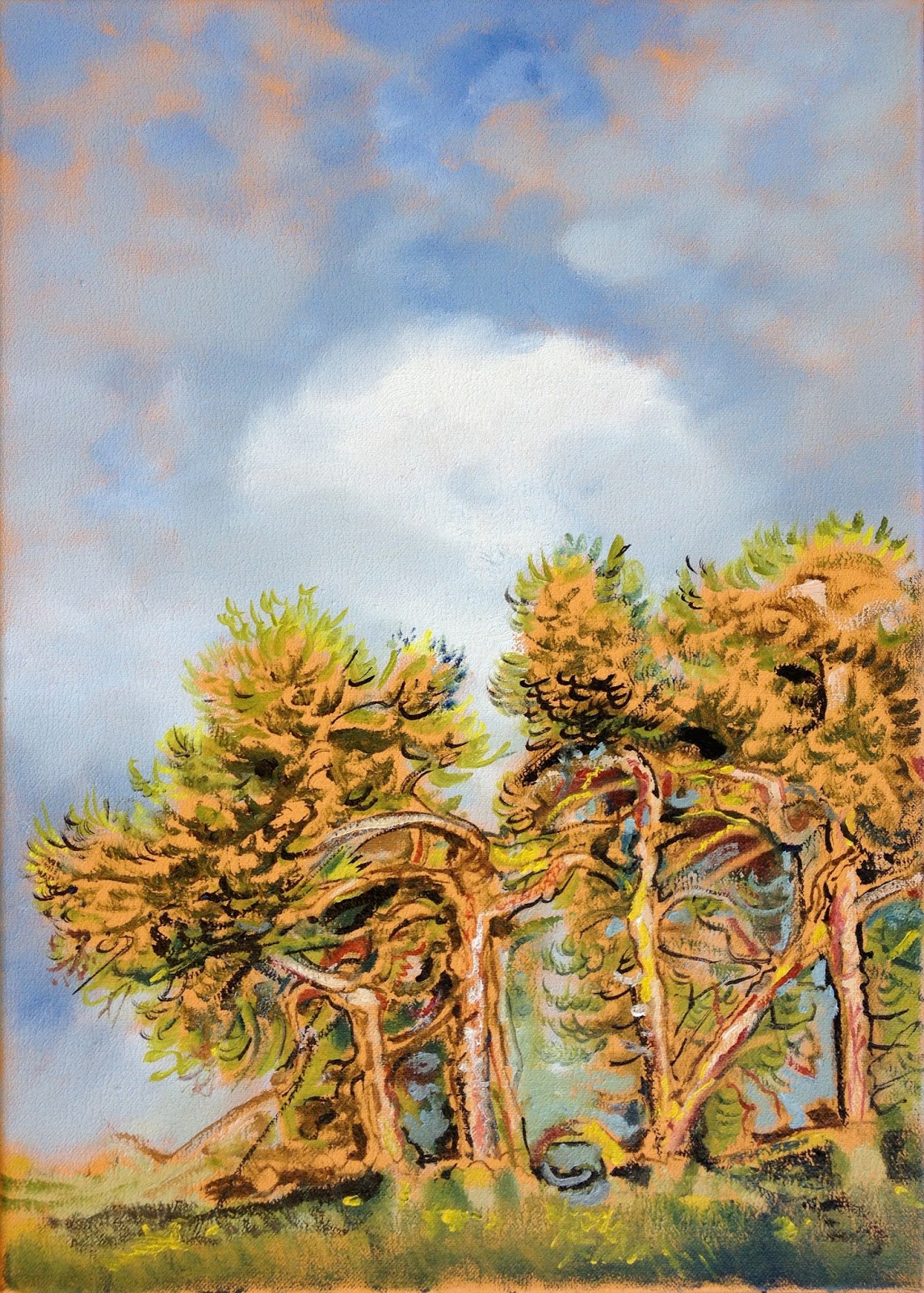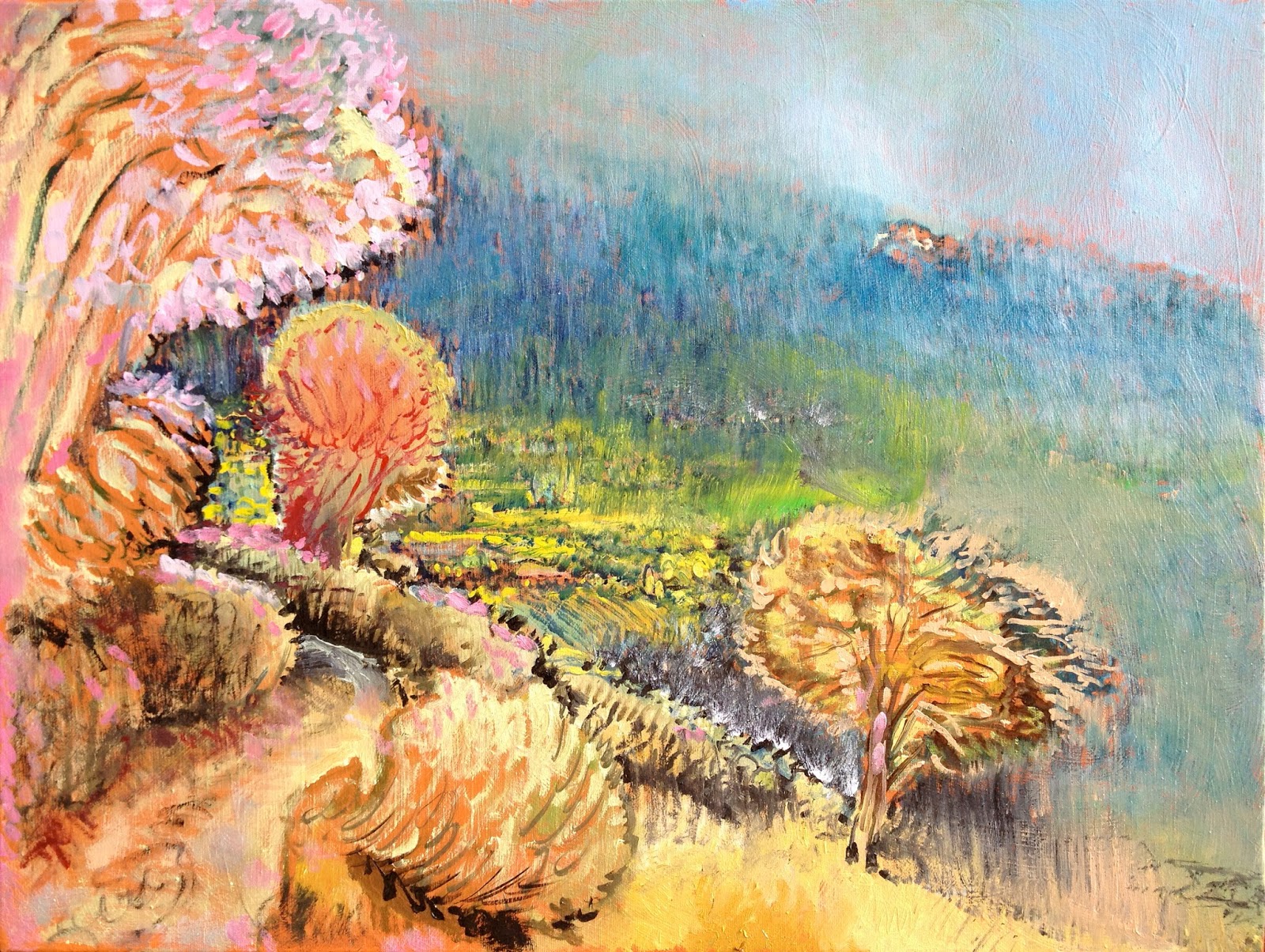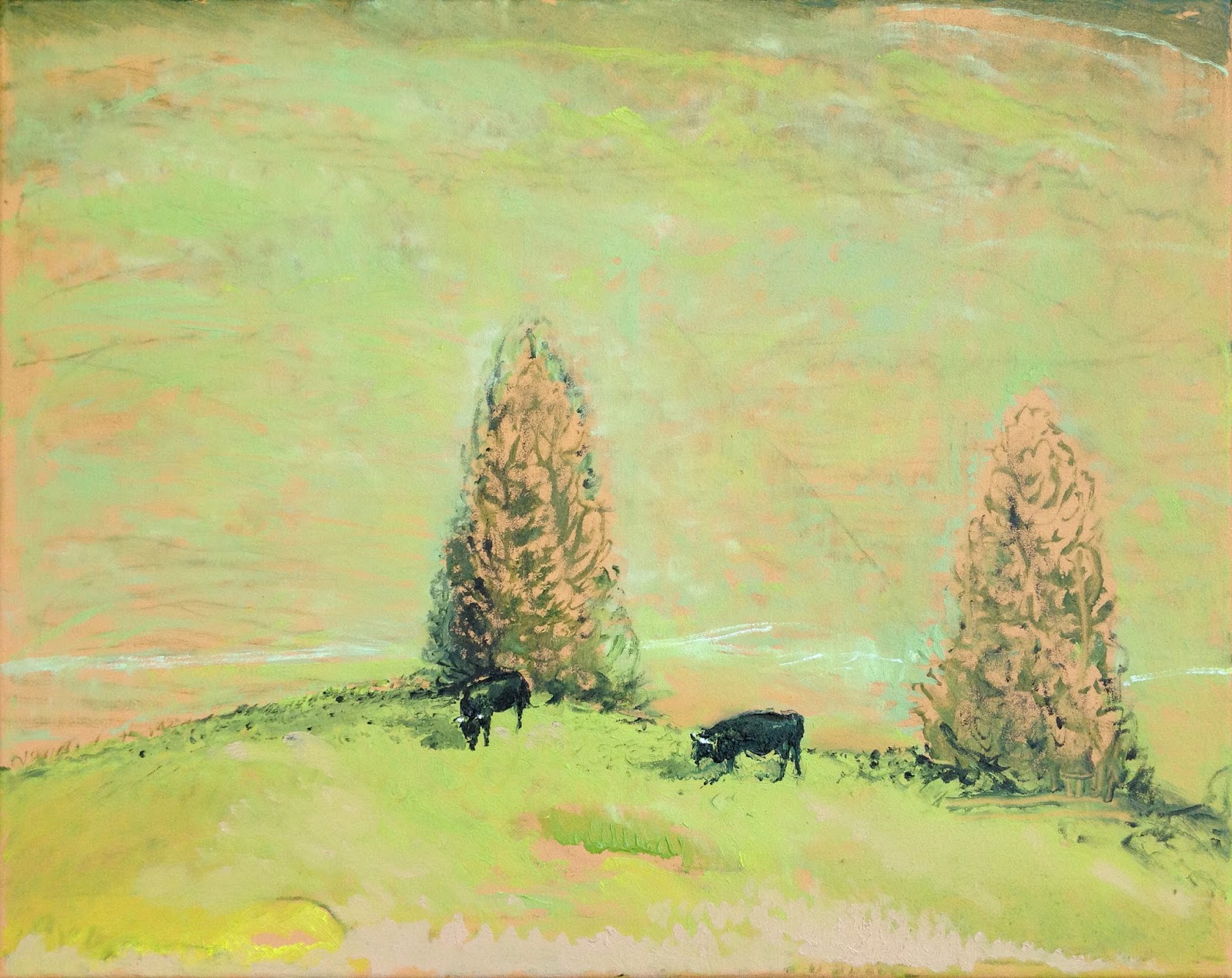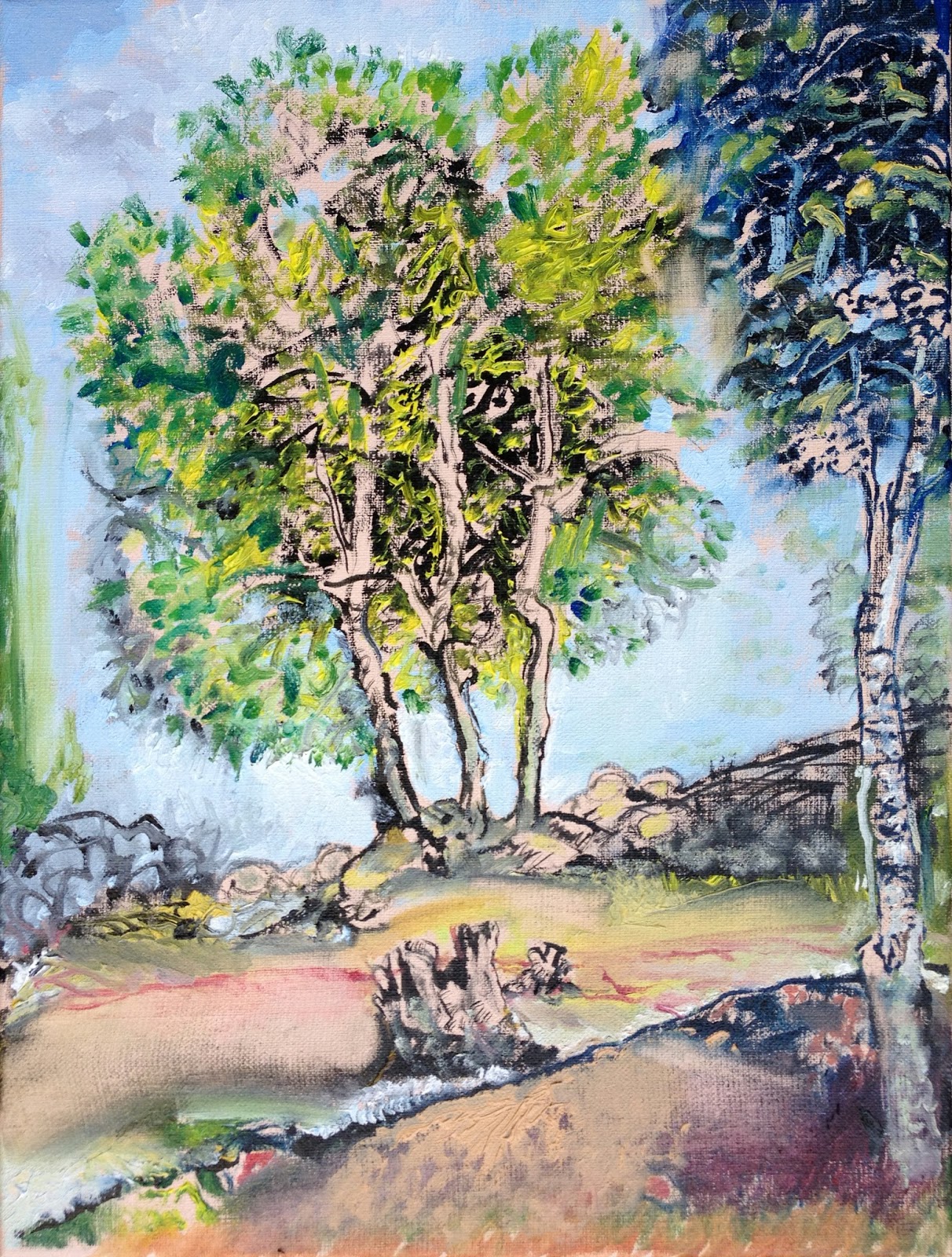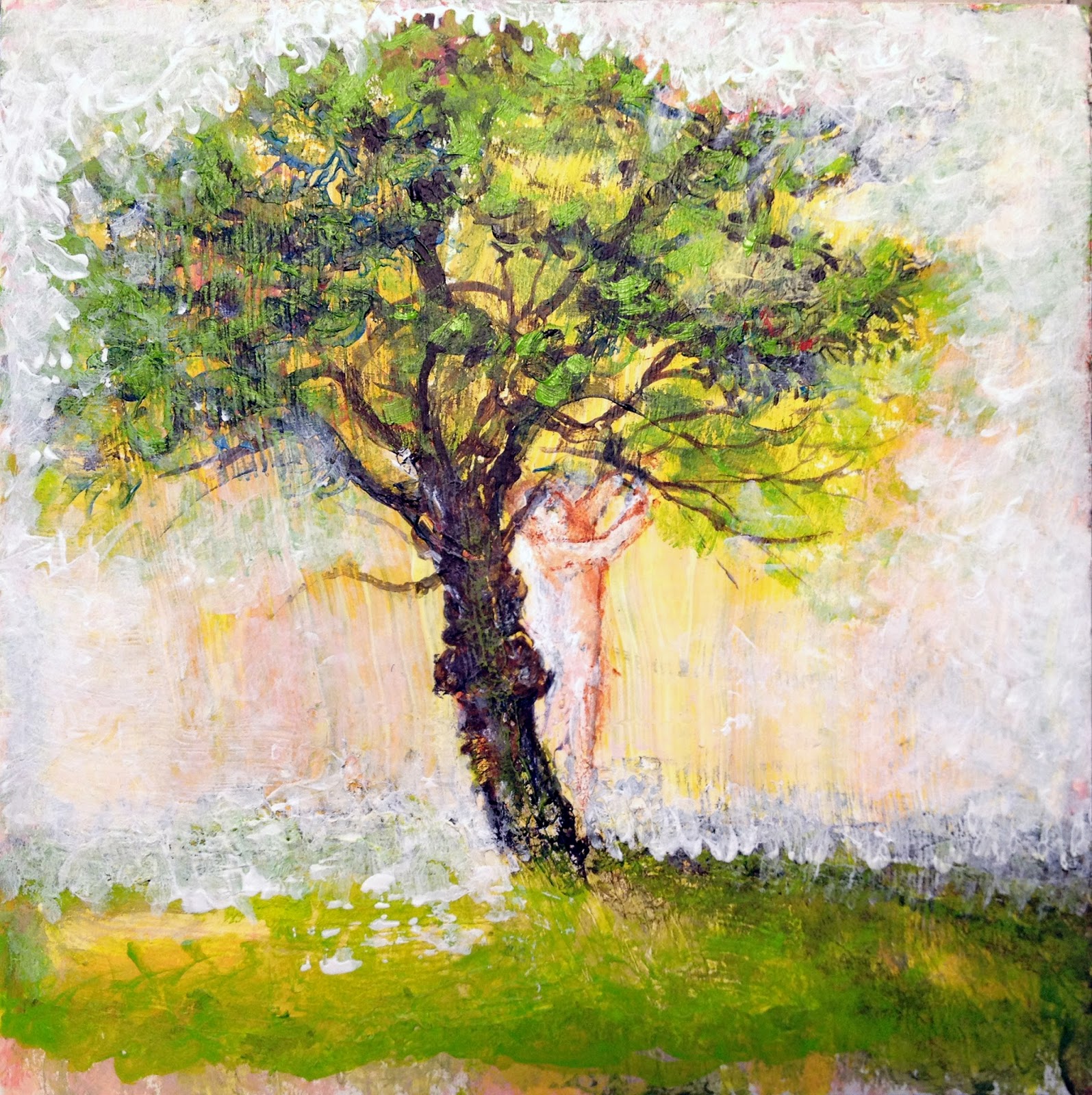This painting is inspired by one of the most represented episodes of the Trojan War. Aeneas fleeing the sack of Troy with Anchises, his father, and his son Ascanius. It is a tribute to my grand-father who had to flee Barcelona in 1939 and who was interned in a refugee camp in France. Aeneas’ mother, the goddess Aphrodite, is painted from a photograph of Gerda Taro taken by Robert Capa during the Spanish Civil War. The hare, ready to run away, produces an alienation effect which suggests the transitory quality of human tragedies in front of Nature’s permanence.
Cette peinture est inspirée de l’un des épisodes les plus représenté de la guerre de Troie; Enée fuyant le sac de la ville avec son père Anchise et son fils Ascagne. C’est un hommage à mon grand-père qui dû fuir Barcelone en 1939 et qui fut interné dans un camp de réfugiés en France. La mère d’Enée, la déesse Aphrodite, est peinte d’après une photographie de Gerda Taro prise par Robert Capa pendant la guerre civile Espagnole. Le lièvre, prêt à détaler, est un effet de distanciation qui suggère le caractère fugitif des drames humains face à la pérennité de la Nature.
Aeneas and his family fleeing from the war, acrylic on canvas, 215×450 cm. 2013
Three philosophers, oil on canvas, 200×160 cm. 2013
Chrysothemis and Electra, acrylic on canvas, 120×100 cm. 2013
In Plato’s Symposium, Porus, or Poros, was the personification of resourcefulness. He was seduced by Penia (poverty) while drunk on more than his fill of nectar at Aphrodite’s birthday. Penia gave birth to Eros (love) from their union. Porus was the son of Metis. According to the character Diotima, Eros is forever in need because of his mother, but forever pursuing because of his father.
